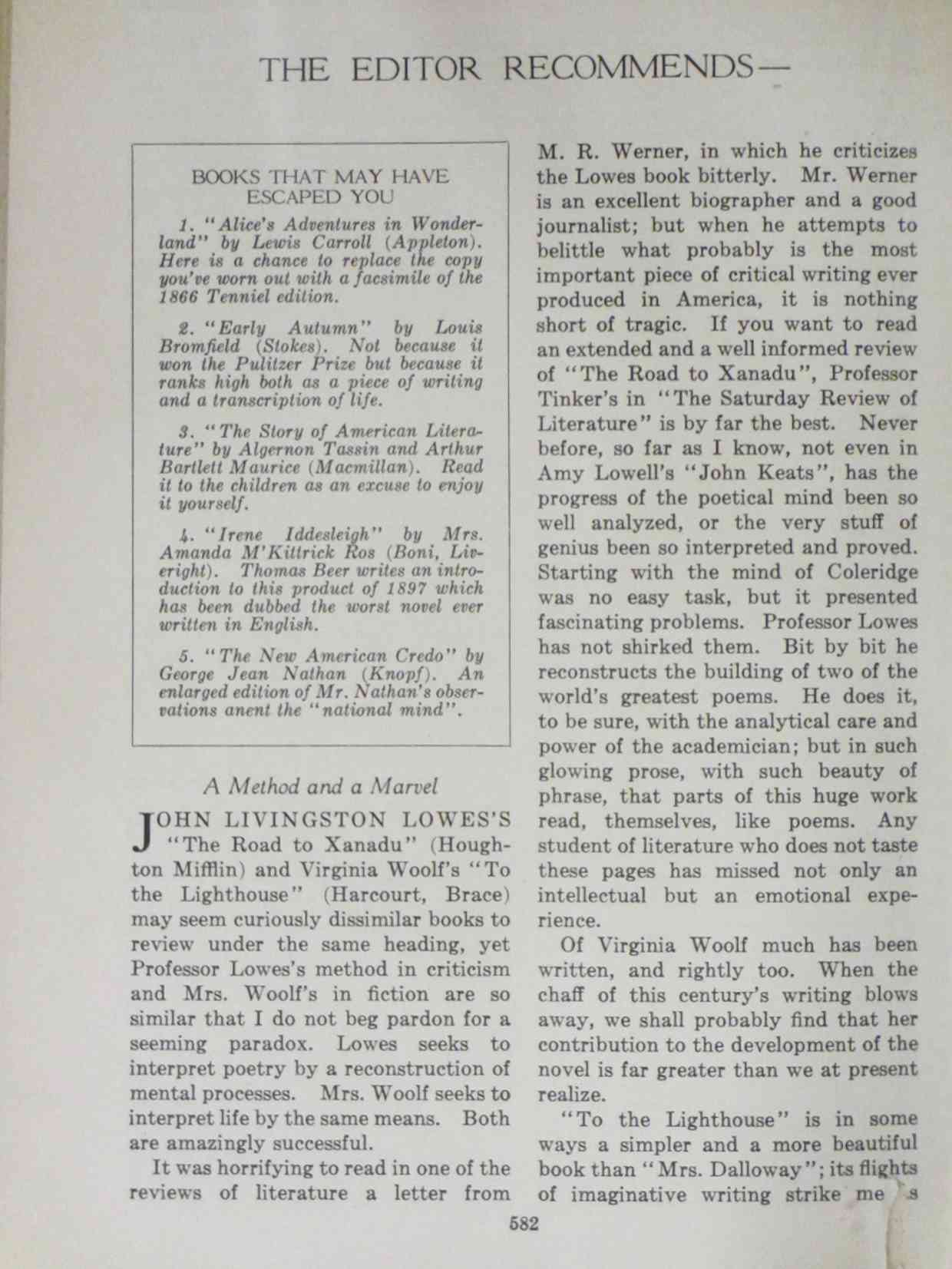
“A Method and a Marvel.” The Bookman (New York). July 1927, pp. 582-83.
A Method and a Marvel
JOHN LIVINGSTON LOWES’S
“The Road to Xanadu” (Houghton
Mifflin) and Virginia Woolf’s “To
the Lighthouse” (Harcourt, Brace)
may seem curiously dissimilar books to
review under the same heading, yet
Professor Lowes’s method in criticism
and Mrs. Woolf’s in fiction are so
similar that I do not beg pardon for a
seeming paradox. Lowes seeks to
interpret poetry by a reconstruction of
mental processes. Mrs. Woolf seeks to
interpret life by the same means. Both
are amazingly successful.
It was horrifying to read in one of the
reviews of literature a letter from
[new column]
M. R. Werner, in which he criticizes
the Lowes book bitterly. Mr. Werner
is an excellent biographer and a good
journalist; but when he attempts to
belittle what probably is the most
important piece of critical writing ever
produced in America, it is nothing
short of tragic. If you want to read
an extended and a well informed review
of “The Road to Xanadu”, Professor
Tinker’s in “The Saturday Review of
Literature” is by far the best. Never
before, so far as I know, not even in
Amy Lowell’s “John Keats”, has the
progress of the poetical mind been so
well analyzed, or the very stuff of
genius been so interpreted and proved.
Starting with the mind of Coleridge
was no easy task, but it presented
fascinating problems. Professor Lowes
has not shirked them. Bit by bit he
reconstructs the building of two of the
world’s greatest poems. He does it,
to be sure, with the analytical care and
power of the academician; but in such
glowing prose, with such beauty of
phrase, that parts of this huge work
read, themselves, like poems. Any
student of literature who does not taste
these pages has missed not only an
intellectual but an emotional experience.
Of Virginia Woolf much has been
written, and rightly too. When the
chaff of this century’s writing blows
away, we shall probably find that her
contribution to the development of the
novel is far greater than we at present
realize.
“To the Lighthouse” is in some
ways a simpler and a more beautiful
book than “Mrs. Dalloway”; its flights
of imaginative writing strike me as






